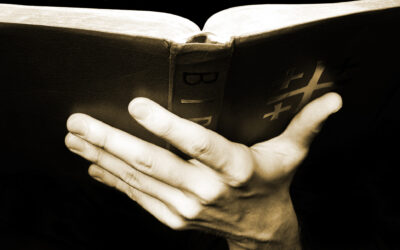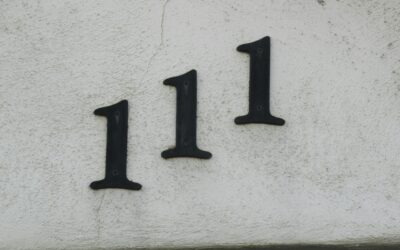The Episcopal Church is part of the worldwide Anglican communion of believers which is the largest communion of Christians on earth. If the estimates of Bishop Esting Christopher are anything to go by, the Anglican communion of believers is at approximately 77 million. Anglicans (and Episcopal Christians by extension) consider themselves part of the Catholic Church although they identify as both protestant and catholic.
They are protestants because they broke away from the Catholic church in the 16th century due to theological and political reasons. The theological reasons are the ones that were raised by Martin Luther, John Calvin, and other leaders of the Reformation movement. The political reasons are the issues of how the church is governed and mostly revolve around the papacy.
On the other hand, the Episcopal Church considers itself Catholic because even though it broke away from the Catholic church, it retained the liturgy and traditions of the Catholic church. In fact, most of the traditions and feasts celebrated in the Catholic church are also observed by the Episcopal church. But there are still some important differences between the two.
The differences between the Episcopal and the Catholic churches
A Catholic wouldn’t feel lost in an episcopal congregation. From liturgy to church administration and everything in between, the two denominations are somewhat identical. That said, there are still some notable differences. Let us have a look at some of the most notable differences (as well as similarities) between the two.
Celibacy
The Catholic doctrine requires those serving as Bishops, nuns, priests, deacons, as well as the pope to be celibate. This means they can neither marry nor participate in sexual relations. Celibacy was introduced in the 11th century and has remained one of the defining teachings o the Catholic church. Unlike the Catholics, the Episcopal Church does not require their church leaders to be celibate. On the contrary, the bishops and priests are encouraged to marry as that is considered one of the requirements of leadership.
Papacy
The Catholics recognize the pope as the overall head of the church. The pope is considered a divine leader who is faultless and is therefore allowed to influence the doctrine of the Catholic church. On the contrary, Episcopalians do not recognize a central authority figure in the church. Even though they have bishops and other church leaders, they believe that all leadership is drawn from Christ who is the overall head of the church. Unlike the Catholics who have one overall leader, the Episcopal church is governed by a general convention that is made up of the House of Bishops and deputies. Lay people are also involved in decision making which may often make decision making slower and messier as opposed to the Catholics.
Liturgical practices
The Catholics and Episcopalians have similar sacraments – they both celebrate the sacraments of Baptism, Eucharist, Confirmation, Matrimony, Holy Orders, Reconciliation, and Anointing of the Sick. apart from the similarities in sacraments, the two denominations also share lots of liturgical similarities which also come with some significant differences.
For starters, the Catholic Mass typically follows a set liturgy, with the Eucharist as the focal point. Catholic mass can be celebrated in various forms, including the Tridentine Mass in Latin and the Novus Ordo Mass in the vernacular language. A typical mass includes readings, specific prayers, and rituals, often guided by a missal.
In the Episcopal Church, worship styles can vary from high church to low church, offering flexibility within its liturgical practices. The Book of Common Prayer serves as a guide for worship and contains liturgies, prayers, and hymns. Also, unlike the Catholic church, the Episcopalians have a less rigid liturgy and they often incorporate contemporary language and inclusive prayers in services.
Sacremental confession
The Catholic church emphasizes sacramental confession and Catholics are required to confess their sins as one of the tenets of salvation. The confession is usually done to the priest. The Episcopalians have a somewhat different view on confession. Even though they believe that confession is important in attaining salvation, they do not make it mandatory for believers. Additionally, they do not confess to priests or bishops but to God directly. This is usually done in their private prayer and devotion at home or even privately during corporate worship.
Birth control
Birth control was banned in the Catholic church in 1930. Even before the ban, the Vatican had been consistently in opposition to birth control. This is because the Catholics believe life begins at conception and any form of contraceptive is considered a sin. The Episcopalians hold a different view on birth control. Married couples in the church are allowed to use contraceptives but they are advised to use responsible birth control options.
Social and Cultural Issues
The Episcopal Church and the Catholic Church differ in their approach to certain social and cultural issues. The Episcopal Church has been more progressive in embracing inclusivity, including the ordination of women and LGBTQ+ individuals to the priesthood and bishopric. It actively engages in social justice advocacy and has taken stances on issues such as racial justice, environmental conservation, and human rights.
The Catholic Church, while maintaining a more traditional stance on certain matters, also addresses social justice issues through its teachings on human dignity, care for the poor and vulnerable, and the promotion of peace. It upholds a consistent pro-life stance on topics such as abortion and euthanasia.
Conclusion
The differences between the Episcopal and Catholic churches are almost negligible. A Catholic will feel very comfortable in an episcopal mass as would an episcopalian in a Catholic mass. This is because the liturgy is almost identical and the observance of feasts and special days are identical. This may well be the reason why so many episcopalians came from a Catholic background and vice versa. One of the significant things about the episcopal church that makes it stand out from other protestants is how they embraced the catholic liturgy. Most of the other protestant churches abandoned almost everything and created a new style of worship. However, Episcopalians only reformed what they considered unscriptural and retained the rest.





